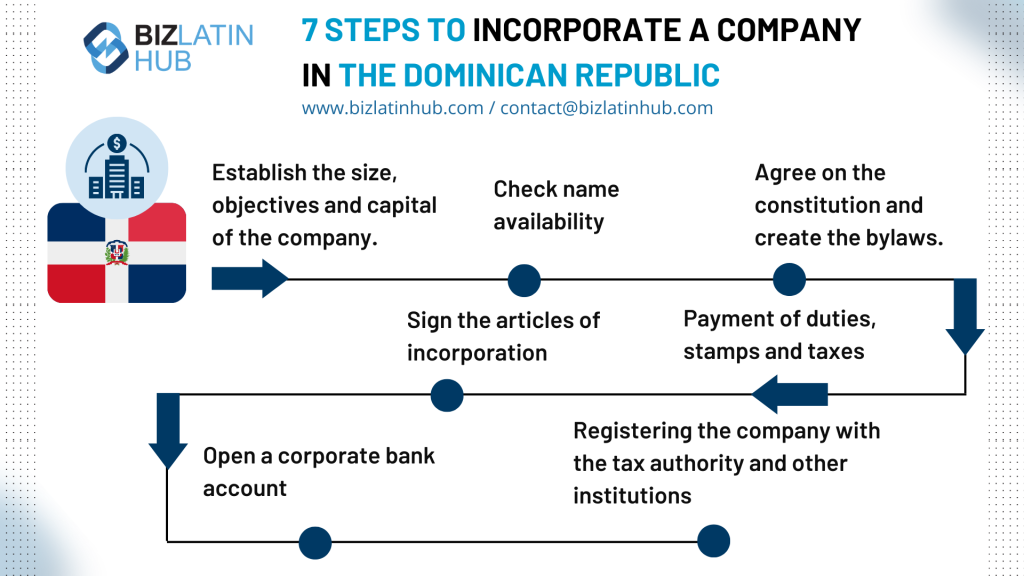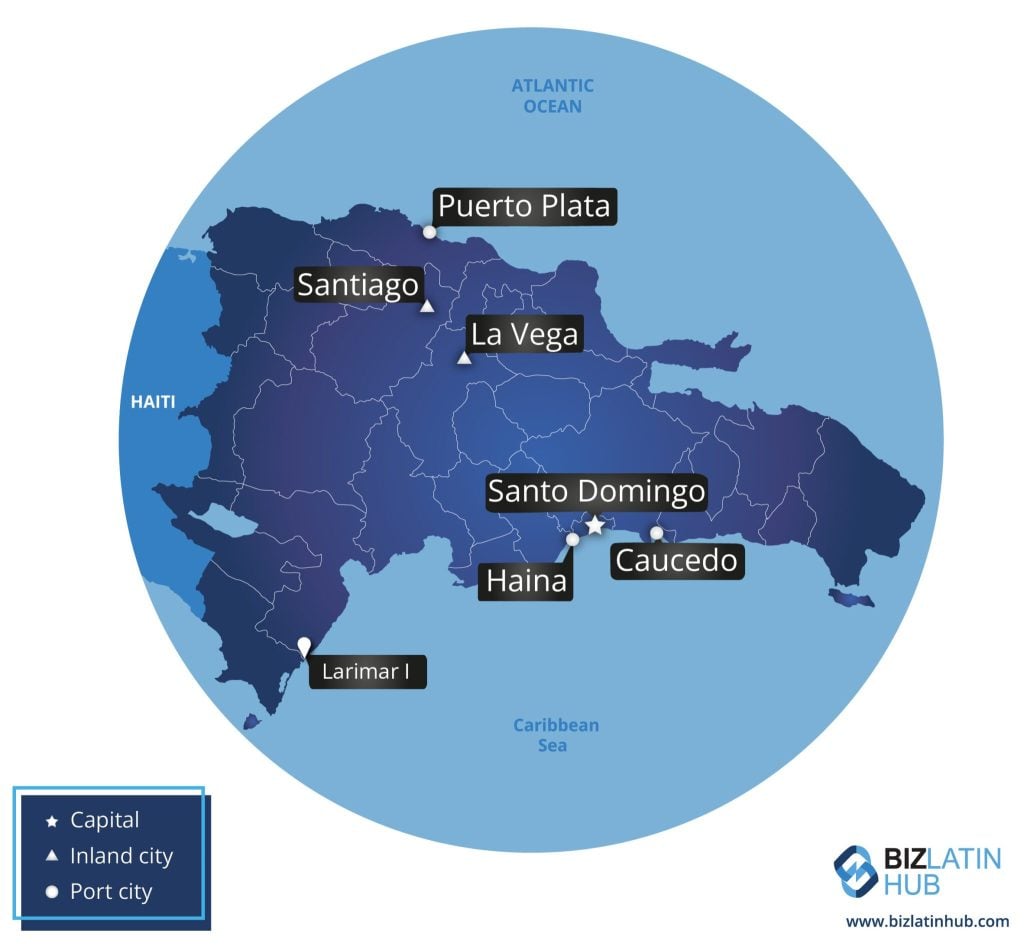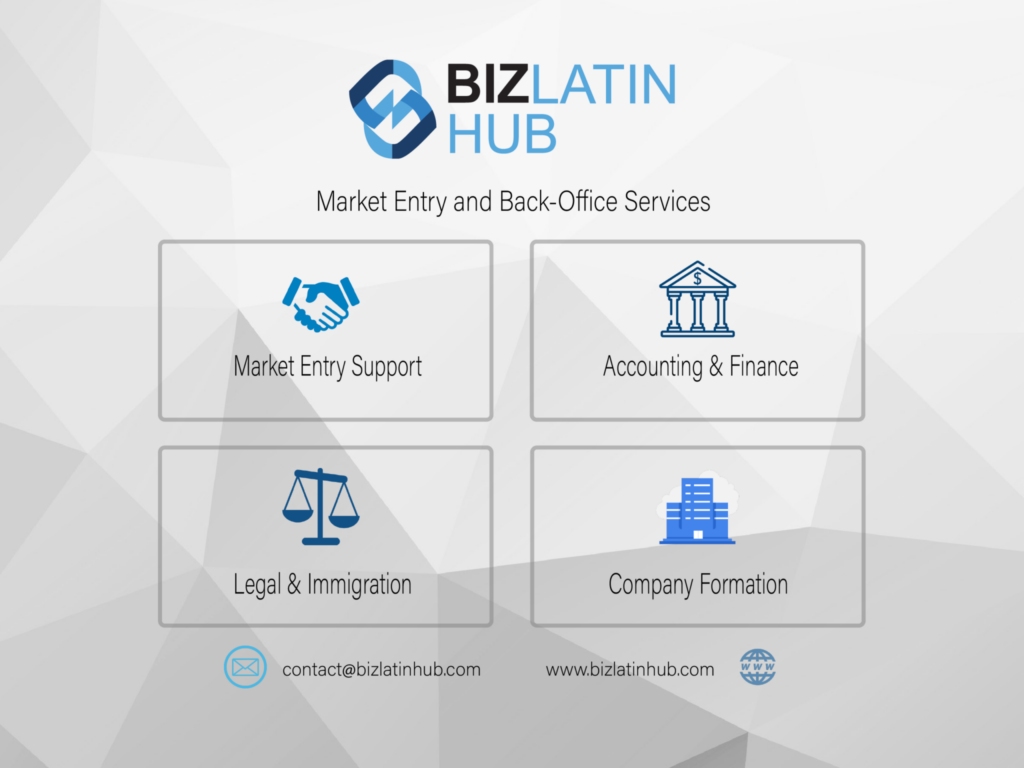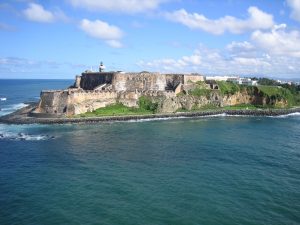Tucked away in the tropical Caribbean islands, the Dominican Republic is quietly making a name for itself as one of the top destinations to do business in Central America and the Caribbean. The country’s GDP growth rate has been consistently positive since 2004, and increased another 3.7% last quarter.
A strong services sector, stable economy and ongoing infrastructure projects provide new and exciting opportunities for doing business in Dominican Republic.
We explain the ease of starting a business in the Dominican Republic, including the steps to register your business, plus the economic conditions of the country and what to look out for in the coming years.

Overview: doing business in the Dominican Republic
The Dominican Republic is one of the most attractive options for doing business in Central America and the Caribbean. Not only does it have strong legal frameworks for supporting new business, but it’s foreign investment-friendly.
The government is working hard to promote ease of doing business in Dominican Republic, and it’s showing. In the World Bank Group’s Doing Business rankings for 2020, the Dominican Republic shows an improvement in the following areas:
- starting a business
- dealing with construction permits
- getting electricity
- enforcing contracts
- resolving insolvency.
Start a business in Dominican Republic
The Dominican Republic offers a fairly straightforward process for starting a business, and usually takes between 2-3 weeks to process.
Additionally, foreign investors and entrepreneurs are able to choose from a number of legal entities that best suit their business needs. A popular choice for many is the Limited Liability Company, known locally as the Sociedad de Responsabilidad Limitada, or SRL. This is often a preferred legal entity in Dominican Republic because shareholders’ personal assets are protected from company debt.
Steps to register a business
Once investors have chosen their legal entity, the remaining steps to start a business in Dominican Republic include:
Appoint a Legal Representative
This person will act on the business’ behalf on all legal matters, and assist you with the business registration process. You’ll appoint this person through drafting and signing a Power of Attorney document.
Draft bylaws for the business
These bylaws act as the constitution for your business, and outline your governance structure, shareholder information, and commercial activities.
Confirm that the company name is available
This can be done through the National Office of Industrial Property (Oficina Nacional de la Propiedad Industrial, or ONAPI).
Request and purchase the company name through ONAPI
The ONAPI agency will publish your company name in a national newspaper, and accept submissions from the public on your proposed name.
This step costs DOP4,755 (approximately US$90). The local currency is the Dominican Peso.
Pay an incorporation fee
You may need to pay an incorporation tax during the company formation process. You can do this at the Internal Revenue Service (Dirección General de Impuestos Internos) and Reserve Bank (Banco de Reservas), if applicable.
Register the business
Next, you can register your business with the Dominican Chamber of Commerce.
Documents you’ll need to submit during this step include:
- Company bylaws
- General Constitutive Assembly, plus a list of Associates
- Details of shareholder investments
- Completed application form for your legal entity, including original copy of the signed Power of Attorney document
- Receipt of any incorporation tax paid
- Copies of identity card
- Copy of your business name registration from ONAPI.
Obtain your business’ tax identification number

You’ll need to apply for a tax identification with the local authority. The Registro Nacional del Contribuyente manages this process.
Documents you’ll need to submit during this step include:
- Completed tax registration application form
- Copy of your business registration certificate
- Copy of the receipt of any incorporation tax paid
- Copy of business name registration from ONAPI
- Copies of identification documents of the business partners.
Note: If you’re hiring staff in your business, you’ll also need to register your new staff members with the Department of Labor and Social Security Office.
Economic snapshot
The Dominican Republic possesses the largest economy in the Caribbean and Central America, and the eighth-largest in Latin America. According to the International Monetary Fund (IMF) the country’s nominal GDP reached US$85.63 billion in 2018.
The population sits around 10.8 million people, and the labor workforce at over 4.7 million. Dominican Republic’s most prominent economic sectors feature dominating services sector (contributing around 60% to overall GDP), followed by strong industry and agriculture sectors.
Export activity reached around 10.33 billion in 2017, and the country’s main export goods include gold, silver, ferronickel, plus sugar, coffee, cocoa, tobacco, meat, among other goods. The Dominican Republic trades closely with the United States, Canada, and the UK, as well as local partners such as neighboring Haiti and several countries in Europe.
Business opportunities in Dominican Republic
Market observers are expecting to see continued growth in the Dominican Republic, and a powerful services sector attracts many multinationals looking for a base to expand into Central and Latin America, and/or provide services to major North American markets.
The largely unsaturated economy provides early mover advantages to opportunistic entrepreneurs and investors. New infrastructure projects developed by both the public and private sector aim to boost the country’s shipping and other transport capability, plus its capacity for tourism. These projects improve the country’s viability as a trading platform and hotspot for tourism businesses in Central America and the Caribbean.
On top of that, the country is a mere 2-hour flight from Miami, and 4 hours from New York. With as many as 8 international airports in the country, the Dominican Republic is accessible to US companies and business travelers.
2020 infrastructure projects
The Dominican Republic has the most infrastructure projects planned in 2020 out of all Caribbean countries. Already, the country has opened an additional lane on the Juan Bosch beltway (known as 2B) to improve traffic flows. This stretch connects 2 main highways, and the project cost US$164 million total.
For 2020, the government plans to complete two operations to expand the country’s maritime logistics capacity. The first focuses on the development of the Multimodal Caucedo port, and began in January 2019. This port is a vital shipping link to the Dominican Republic, supporting maritime cargo activities with several neighbouring Caribbean countries. The port houses the Caucedo Logistics Center, which is the country’s only free trade zone located inside a port facility. The project aims to increase the depth of the port to 5.5 meters, and expand the facility by 400 meters.
The second project aims to boost tourism by building a new cruise terminal at Puerto Plata, San Felipe. This project is called the Puerto Plata Port Investment, and is said to cost around US$125 million. Planning for this project reportedly began in January 2019 as well, and officials expect to start receiving cruise ships at Puerto Plata in November 2020. By 2021, this project could bring in as many as 150 ships and 650,000 tourists.
Do business in Dominican Republic with local legal experts
The Dominican Republic offers exciting opportunities for entrepreneurs and investors looking to do business in the Caribbean and Central America. While the country is still largely untapped by foreign investors, now is the perfect time to establish yourself in a growing market.
At Biz Latin Hub, we provide expert corporate legal and accounting advice to foreign businesses expanding into Central and South America, and the South Pacific. Our multilingual team of local and expat professionals provide in-depth guidance and comprehensive business solutions for all market entry and back-office needs. This includes company formation, corporate compliance, due diligence, hiring and PEO services, and visa processing.
Contact us today to find out how we can be your single point of contact for doing business in the Dominican Republic.
Learn more about our team and expert authors.






